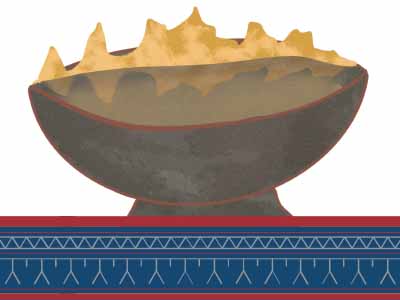Current Projects
Past Projects
Sexual Health
Sexual health programming has been a cornerstone of Pauktuutit’s Health Department since the late 1980s and continues to be a key area of program development. Pauktuutit’s sexual health programs have grown to become a respected and leading-edge partner and works with communities to provide community mobilization workshops, conferences, skill building workshops and other events.
Pauktuutit’s work expands beyond HIV/AIDS to include other sexual health matters. As with other facets of Inuit health, sexual health must be approached holistically. Factors that can foster an HIV/AIDS epidemic can be linked to the same factors that foster high teenage pregnancy rates and high rates of STBBIs. Social determinants of health such as limited access to health services, inadequate housing, improper nutrition, limited economic opportunities, and various forms of violence and abuse are also factors that influence the sexual health of individuals and communities.
Most recently, Pauktuutit has undertaken the following project(s):
The Inuit Sexual Health Network is a project funded by the First Nations and Inuit Health Branch of Health Canada with the goal to establish a network of leading Inuit sexual health experts. This network provides an opportunity for experts to share promising practices and develop initiatives to address the high rates of STBBIs and to prevent an epidemic of HIV and HCV from occurring within the Inuit population.
Uuktuutit: Inuit Sexual Health Indicators, published in 2021, responds to the 2017 Tavva: Inuit Sexual Health Strategy objective for Inuit-specific surveillance of sexual health and is directed towards future research orientations. Translations of this resource have recently been published in six Inuktitut dialects and French.
Research on Sexual Health
Pauktuutit has partnered with Dalhousie University to investigate ways to promote sexual health among Inuit. Our community-based research projects aim to improve access to education, testing (anonymous testing with pre- and post-test counselling), diagnosis, care, treatment and support. Over the past decade our partnership has received successful funding to do several research projects. Some of our previous projects included:
- Strengthening community-based approaches to HIV/AIDS education, screening, and treatment among Canadian Inuit youth (2007-2008)
- Creating Culturally Relevant HIV/ AIDS Education, Prevention & Treatment for Canadian Inuit (2012-2013)
- Adapting the Community Readiness Model (CRM) for HIV/AIDS Prevention, Education and Screening with Inuit Communities Developing Strategies for HIV Prevention with Community Input & Collaboration (2015-2019)
We are now working on a project funded by the Canadian Institutes of Health Research:
- A Holistic Approach to Cervical Cancer Prevention & Treatment Among Inuit Communities: Using Inuit Qaujimajatuqangit (IQ) to Guide the Development of Culturally Competent Care There is very little Inuit-specific information available to help Inuit women prevent cervical cancer. This project aims to better incorporate Inuit beliefs and values in cervical cancer prevention and treatment efforts. This project will also address unresolved physical and sexual trauma as a barrier to accessing reproductive health care for women. Together, our team of Inuit community members, organizations and researchers intend to find a way to develop more culturally competent prevention and treatment strategies using IQ.
Activity Summary for the project (PDF – 376kb)
ᓇᐃᓈᖅᓯᒪᔪᑦ ᖃᐅᔨᑎᑦᓯᒍᑏᑦ ᐱᓕᕆᐊᖑᓂᑯᐃᑦ ᐅᑯᓄᖓ
Partners/Funders
- First Nation and Inuit Health Branch
- Public Health Agency of Canada
- Canadian Aboriginal AIDS Network
- Inuvialuit Settlement Region
- University of Saskatchewan
- Nunavik Regional Health Board of Health and Social Services
- Government of Nunavut
- Government of the Northwest Territories
- Nunatsiavut Government
- University of Calgary
- University of Saskatchewan
- Canadian Cancer Society
- Canadian Institutes of Health Research
CheckUp!
The Nunavik Board of Health and Social Services (NBHSS) launched the CheckUp! Project, a communication campaign, using social marketing and social media to influence the social norms surrounding screening, and the normalization of testing. The NBHSS also works in collaboration with health centers to improve access by introducing fast-track screening services: the ‘quick checkups’. The CheckUp! Project has emerged as an Inuit-specific promising practice focusing on the secondary prevention of STBBIs. This project has proven to effectively engage and empower Inuit youth in Nunavik by encouraging youth to practice their agency while engaging with the healthcare system.





